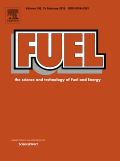 Dear Retraction Watch readers, we have some exciting news to share.
Dear Retraction Watch readers, we have some exciting news to share.
After more than four years, 2,000 posts, and incredible responses from the scientific community, we are thrilled to announce that The Center For Scientific Integrity, a not-for-profit corporation we’ve established, has been awarded a $400,000 grant from the MacArthur Foundation to expand the work of Retraction Watch.
The goal of the grant — $200,000 per year for two years — is to create a comprehensive and freely available database of retractions, something that doesn’t now exist, as we and others have noted. That, we wrote in our proposal, is
a gap that deprives scholarly publishing of a critical mechanism for self-correction.
While we’re able to cover somewhere around two-thirds of new retractions as they appear, we’ll need more resources to be comprehensive. Here’s more from our proposal: Continue reading Retraction Watch is growing, thanks to a $400,000 grant from the MacArthur Foundation








